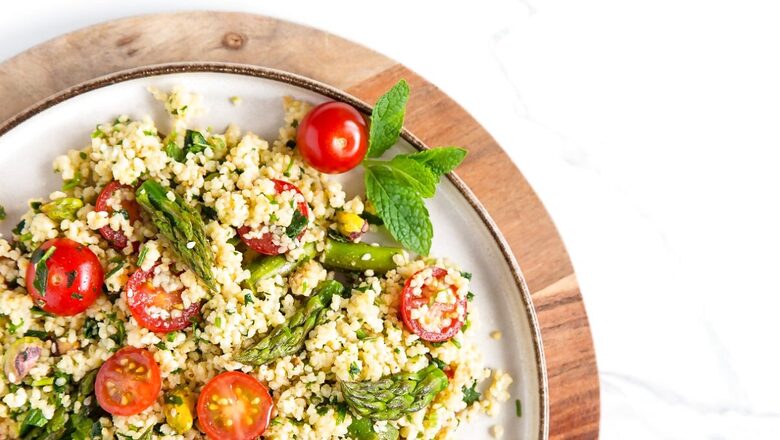
views
Protein is an essential macronutrient crucial for muscle repair, immune function, and overall health. For proper functioning, our body requires 20 amino acids, out of which 9 are essential, meaning our body cannot produce them on its own. Therefore, we need to obtain these essential amino acids from different and complete protein sources. When choosing protein sources, it’s essential to prioritise quality over quantity. Dt. Poonam Arora (Nutrigenomics, Spain) DDHN Dietician with Fast&Up shares five top choices of plant-based protein:
- LentilsLentils and Legumes are excellent sources of protein, packing 24 – 25 gms of protein per 100 gm. Some lentils contain lysine, an amino acid that, when combined with sulfur-based proteins found in rice, forms a complete source of protein.
- SoybeansSoybeans are renowned for their high protein content, providing around 50 gms of protein per 100 gm. They contain all essential amino acids, making them a complete protein source. Foods like tofu, tempeh, and edamame are popular soy-based options that can be incorporated into various dishes.
- QuinoaHailed as a superfood, quinoa is gluten-free grain rich in protein and nutrients. With all nine essential amino acids, a 100-gm serving contains around 14 gms of protein, making it a complete protein source.
- Pumpkin SeedsPumpkin seeds are nutritional powerhouses, packed with essential minerals like magnesium, phosphorus, copper, and zinc. While not a significant protein source individually, they contain all essential amino acids. When combined with other plant-based sources, they offer a complete protein profile, providing about 19 gms of protein per 100 gm serving.
- NutsAlmonds, pistachios, and peanuts are excellent sources of protein and healthy fats. Although they may not individually provide all essential amino acids, when combined with grains or legumes, they contribute to a complete protein profile. Peanuts, for example, contain about 26 gms of protein per 100 gm serving.
Incorporating these plant-based sources of complete protein into your diet can help meet your nutritional needs while offering a variety of delicious and healthful meal options. Whether you’re vegan, vegetarian, or simply looking to diversify your protein sources, these options can contribute to a balanced and satisfying diet.
For those struggling to achieve protein goals through whole foods alone, plant protein supplements offer a convenient and efficient solution. Derived from sources like pea protein or soy, these supplements provide essential amino acids crucial for muscle repair. Vegans and vegetarians, in particular, can benefit from supplementing their diet to ensure adequate protein intake. Remember, it’s crucial to consult with a healthcare professional for personalised dietary guidance. By combining plant-based protein sources with supplements, you can create a flexible and nourishing approach to support overall health.




















Comments
0 comment